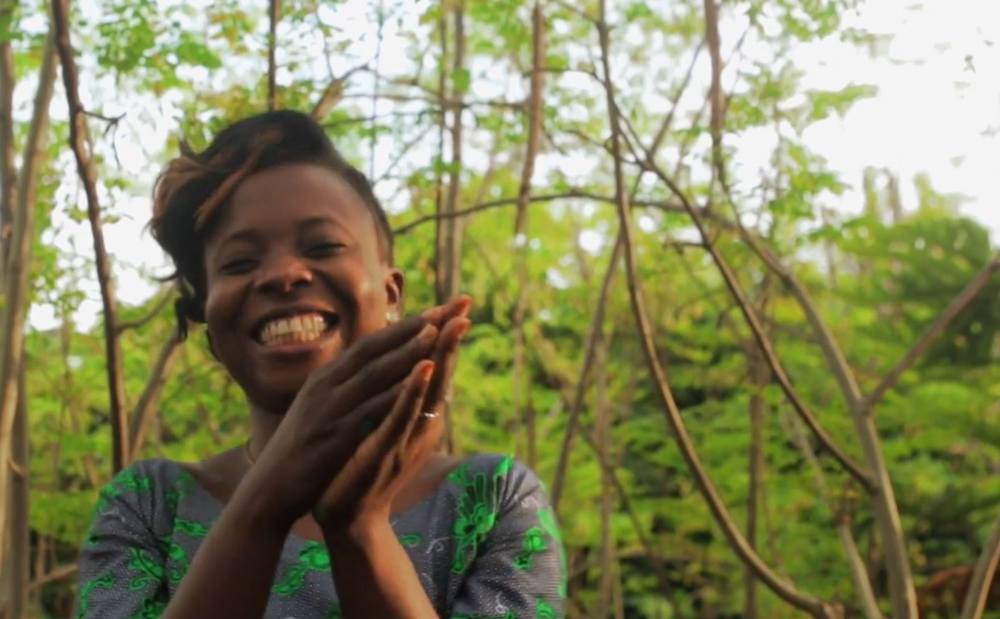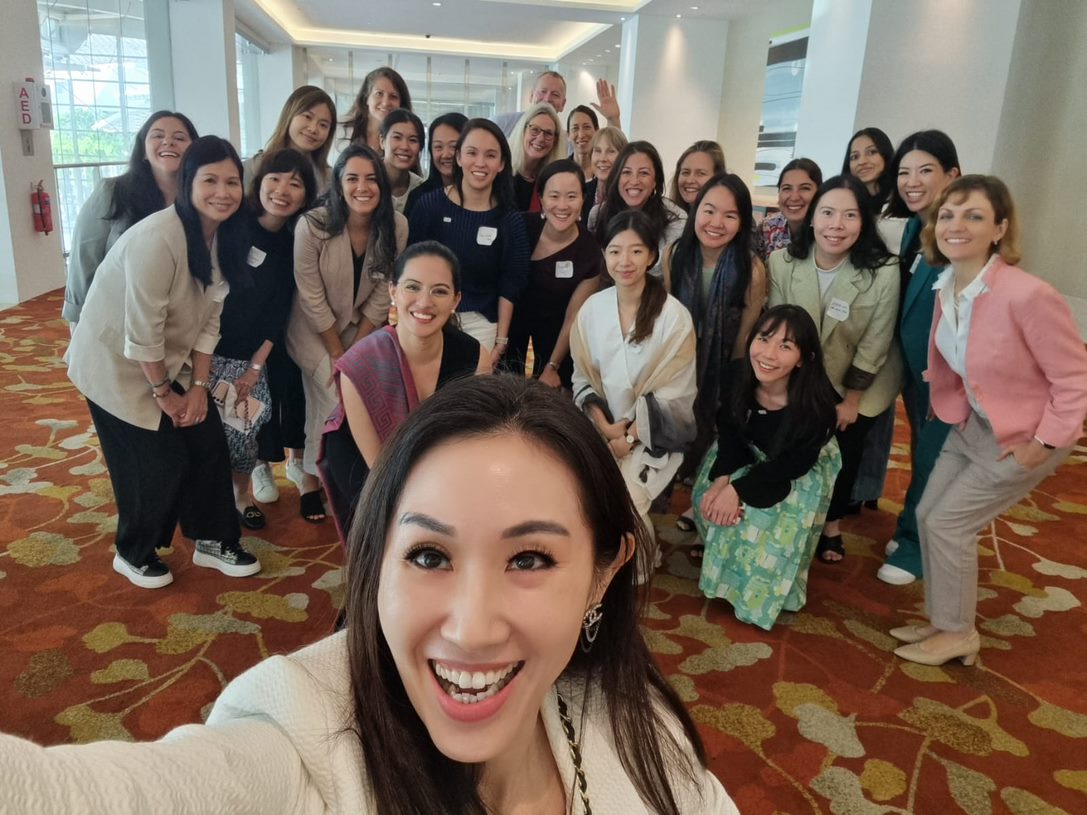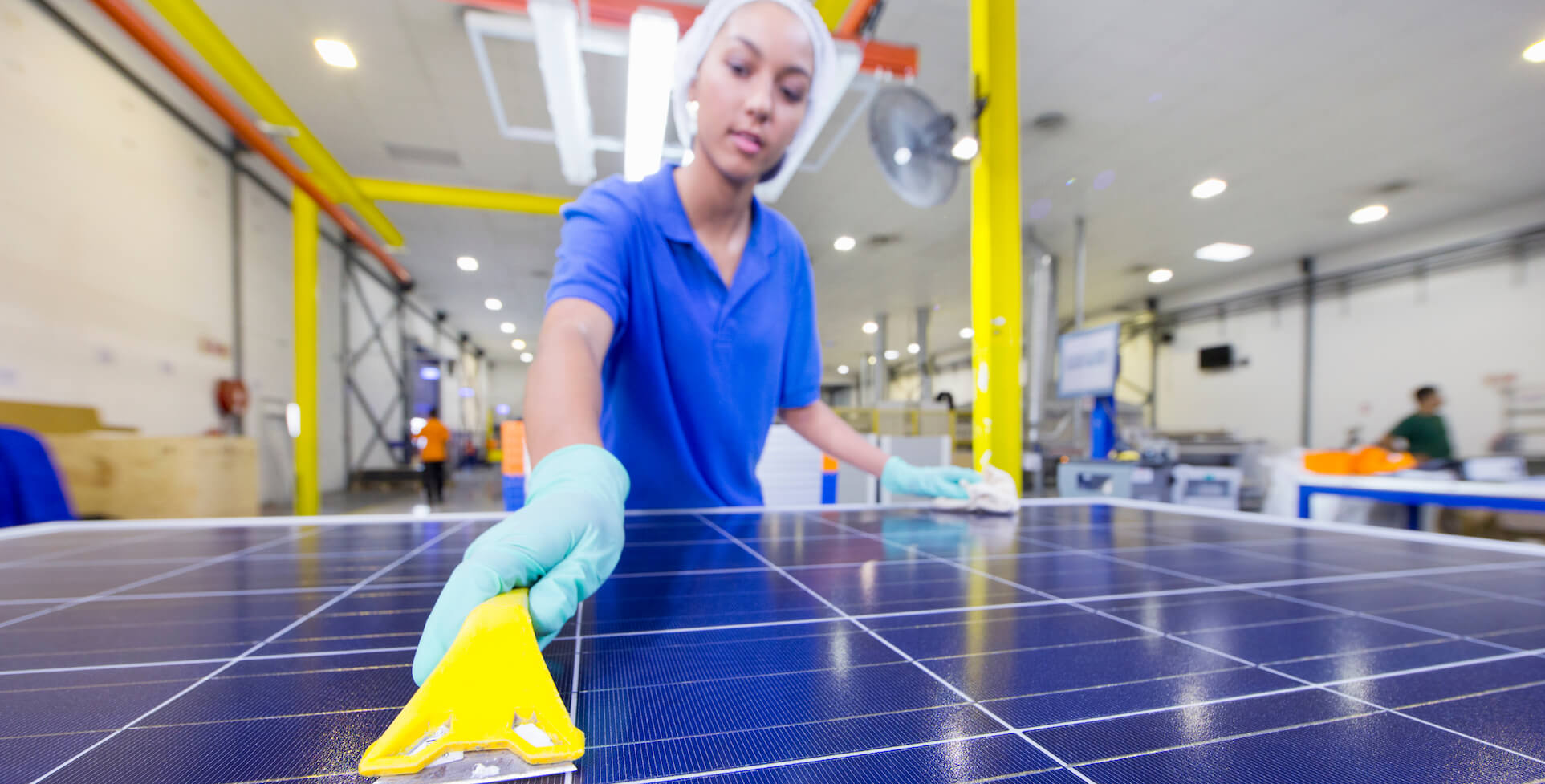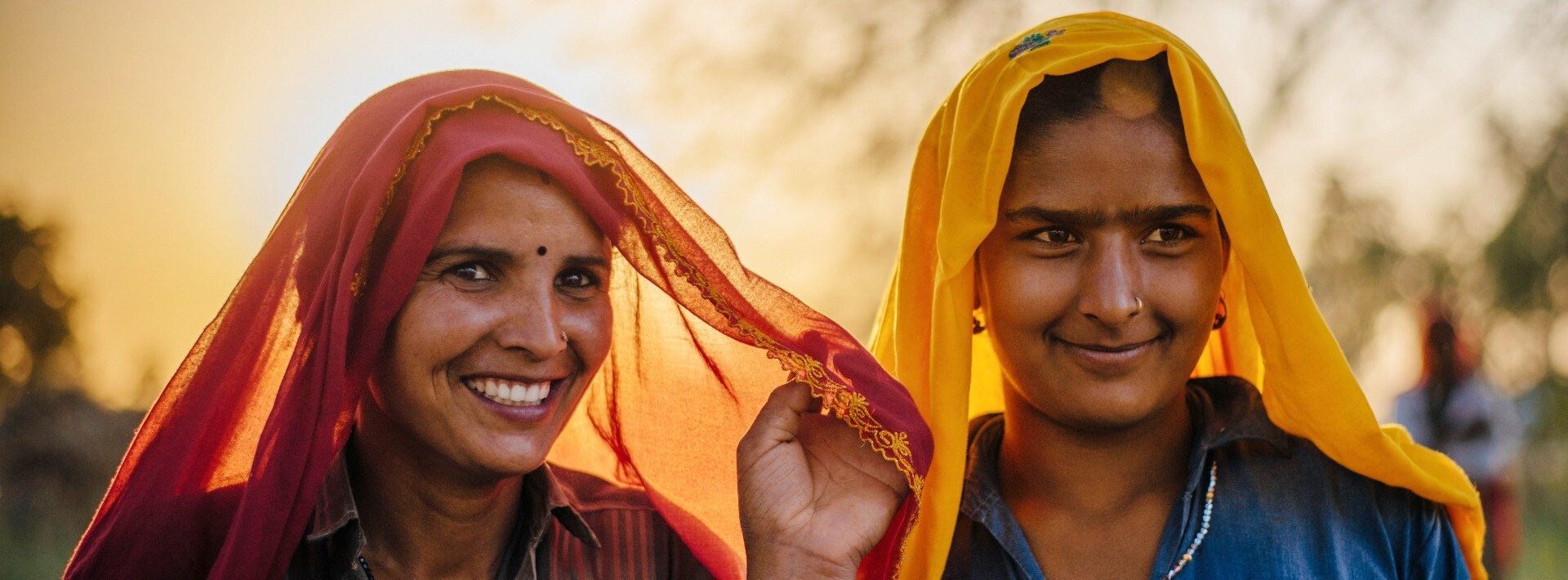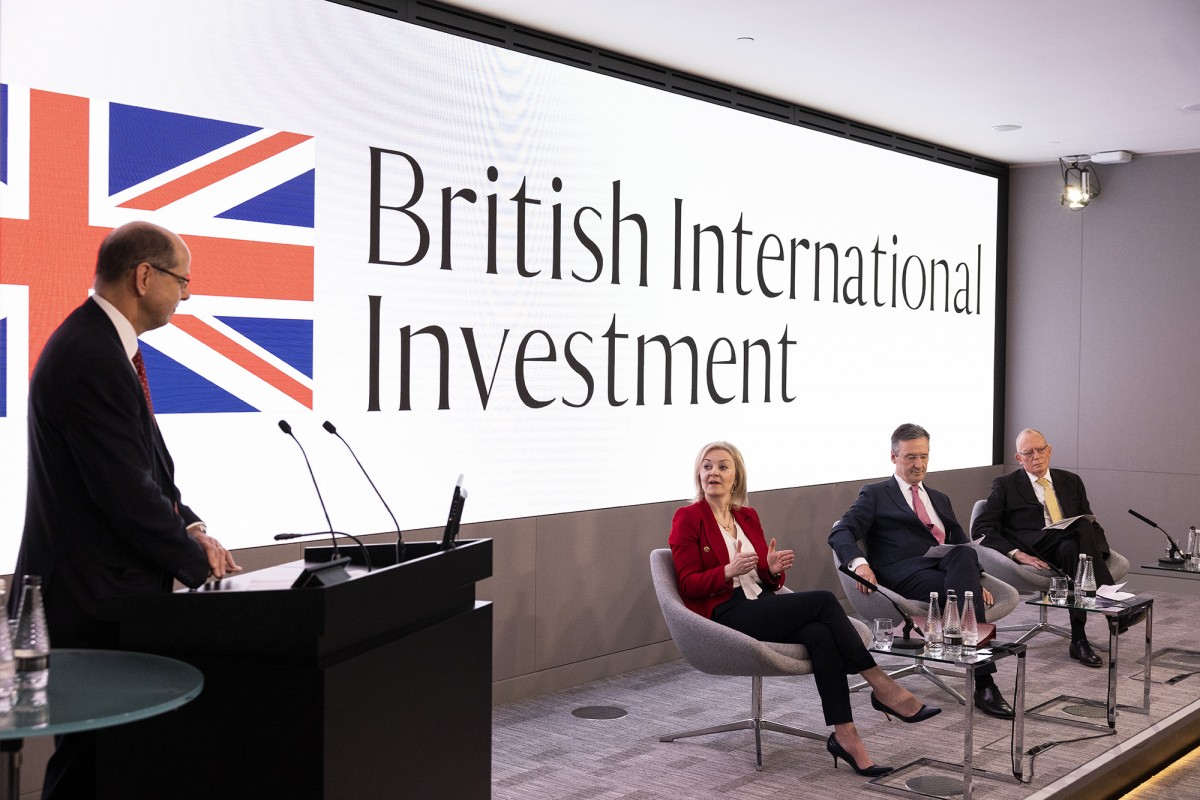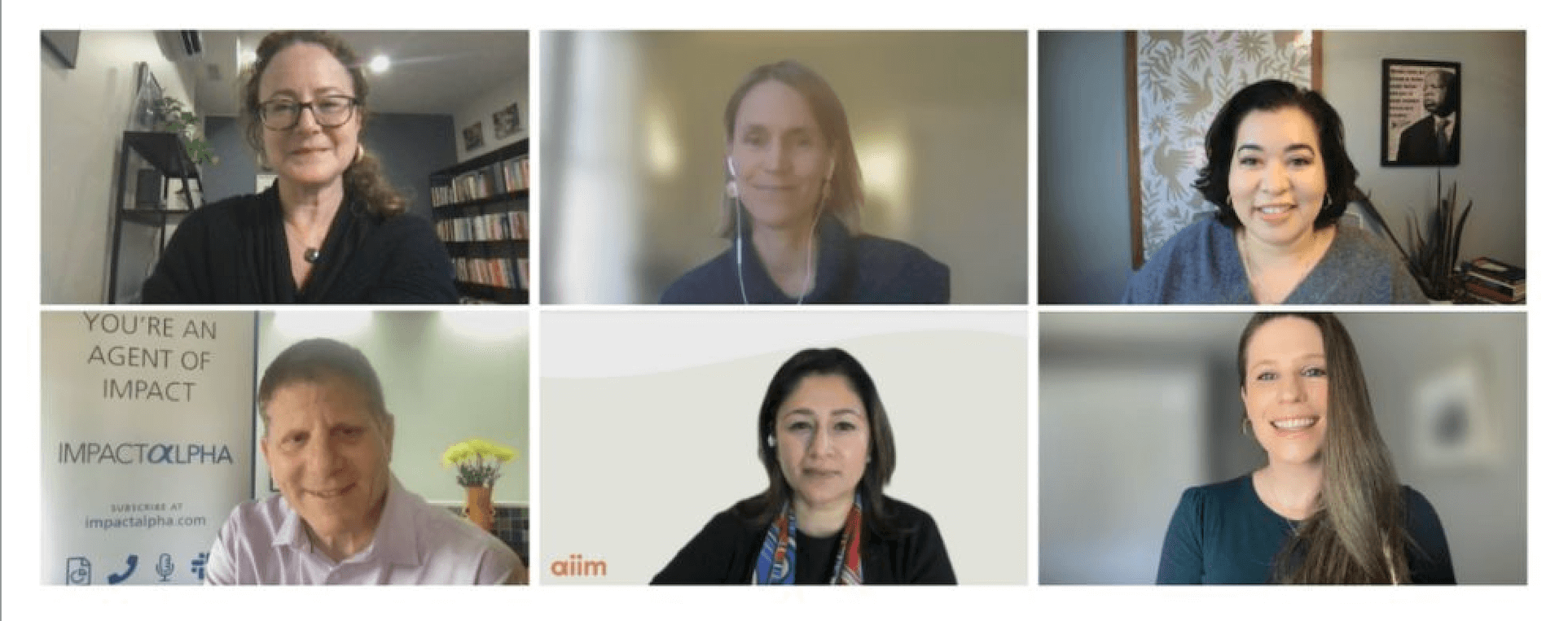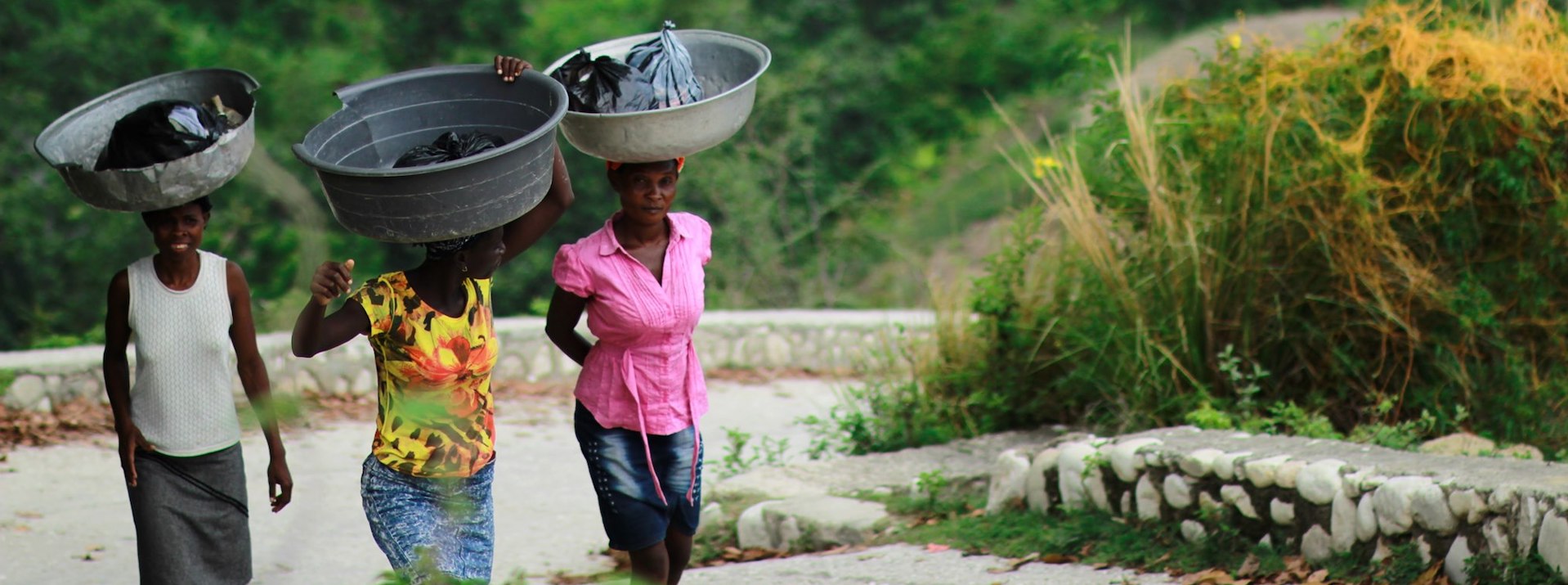ImpactAlpha, March 1 – Capital is flowing to climate solutions. Climate bonds have topped $1 trillion. SPACs, or special purpose acquisition companies are raising billions to take electric-vehicle, charger-network and battery-storage and other climate-focused companies public. Trillions more is needed. One way to unlock it? Follow the women.
“Companies with better gender diversity are more likely to establish climate goals, they are more likely to avoid environmental litigation and sanctions from regulatory authorities, they are more likely to avoid fraud, and they are more innovative,” said Pax World Funds’ Julie Gorte.
Gorte joined hundreds of other Agents of Impact on ImpactAlpha’s Call No. 27 last week to explore the under-tapped opportunity of investing at the intersection of climate and gender-lens investing. As Gorte pointed out, there is both less risk and greater impact when investors intentionally commit to both themes.
Indeed, investments that target U.N. Sustainable Development Goals No. 5 (gender equality) and No. 13 (climate action) address nearly all 17 SDGs, finds a new report from GenderSmart, a gender-lens investing ecosystem builder (see, “Mapping the climate edge for gender investors – and vice versa“). What’s needed is greater investor education and awareness about how, argued GenderSmart’s Suzanne Biegel.
“We need the climate investors and the climate business actors to up their game on gender as much as we need the gender actors to up the game on climate,” she said.
Enterprises like Cameroon-based agri-finance company Grassland Cameroon are demonstrating what the opportunity looks like—and what’s at stake if capital remains siloed. “Women are not only in charge of feeding their children, but they’re also in charge of providing that food in some way. Because the climate is changing so rapidly, it’s difficult for them,” said Grassland’s founder Manka Angwafo.
Grassland provides asset-based financing to 1,000 Cameroonian smallholder farmers, most of whom are women. The company is not only helping to capitalize smallholder farmers season-to-season, it’s helping them minimize climate impacts by introducing zero-tillage, crop rotation, cover crops and other resilience practices, as well as providing weather information. “We’ve had to pivot and change our approach to adapt to the climate crisis that everyone is facing,” Angwafo said.
Ripple effect
U.S.-based snackfood company Kuli Kuli is attuned to similar risks in its smallholder farmer supply chain, said founder Lisa Curtis. For Kuli Kuli, which sources the superfood “weed” moringa from mostly-female farmers for its product line, there can be no separating climate considerations from its farmer-impact strategy; if its farmers are vulnerable to climate change, the impact will ripple through the food chain directly to end consumers.
Locally-based capital providers are often the first to spot opportunities at the intersection of climate and gender-lens investing.
Evelyne Dioh of Senegal-based women’s investment firm WIC Capital observed that nearly all of its portfolio companies are addressing climate change in some way—both directly, as in the case of E-Cover, which makes new materials out of recycled tires, or indirectly, as with its fashion and food entrepreneurs, which source supplies from local growers and artisans.
Dioh, whose firm has considered a climate-focused investment vehicle, said she feels that too many “dedicated’ funds are counter-productive. She would like to see more investors recognize that gender-lens investing is climate investing and commit to the gender-lens funds that already exist. “We already have a gender lens, so maybe we just advertise more the climate impact that we have.”
Local to global
Collectively, support for entrepreneurs like Grassland Cameroon and Kuli Kuli and local capital providers like WIC is as important to climate change adaptation as it is to mitigation, which is where most of the large sums of investment capital are currently flowing.
“While there is a strong focus on mitigation, and the top three [carbon] emitters—China, India and the U.S.—we need to get it right in other countries, too,” said Richenda Van Leeuwen of the Aspen Network of Development Entrepreneurs, or ANDE. “If big countries like Nigeria and Ethiopia, with burgeoning middle-class development and large populations don’t get on low-carbon pathways today, than they will be the biggest emitters by 2050.”
“There is a great opportunity for us to align our capital,” towards climate-friendly economic development, she added. “Whether it’s electric vehicles and green transportation, water technologies and regenerative agriculture, there are just so many different areas that we can move into, and I think women can be at the forefront leading that.”
To this end, ANDE is partnering with Global Affairs Canada, the Aga Khan Foundation of Canada and World University Service of Canada on Accelerating Women Climate Entrepreneurs, an initiative to support women entrepreneurs to start and grow climate-related businesses in sub-Saharan Africa.
New financial commitments are marrying gender-lens and climate investing. The U.S. International Development Finance Corp. and the Shell Foundation announced during the GenderSmart Summit in February a $145 million blended-finance commitment to invest in small businesses in Africa and Asia, which are on the frontlines of climate change.
Van Leeuwen noted that accelerating climate entrepreneurship in emerging markets “is an area where we still have opportunities to grow and strengthen our impact. There are only about two dozen climate-focused enterprise accelerators building the investment pipeline in outside of North America, Europe and Australia. She added: “Capitalizing women’s entrepreneurship is going to help lead us through addressing climate change.”
“The flow of new IPOs, of new ideas into public markets depends on what all the other people on this call have talked about,” said Gorte, bringing the focus back to the public markets, which unlock the big dollars for sustainability, through thematic environmental, social and governance-themed, or ESG, investing.
Equality, discrimination, climate change, biodiversity, resource depletion, “major investment players are talking about these problems because they are fiduciary responsibilities, they are financially material,” she observed. “Any progress that we make on any one of these things will make progress on all the rest of them that much easier. And the more we don’t make progress on any one of these things, the harder it will make solving everything. They all impact everything.”
Learn more
Resources shared by Agents of Impact on The Call:
- GenderSmart’s “Gender and Climate Investment” report and information about its climate-gender investing working group
- CRD Global’s research, “Diversity Drives Performance,” spotlights global public companies that are outperforming their global peers across diversity performance metrics. Diversity Drives Performance
- Trends on blended finance and the gender-climate nexus from Convergence
- Parallelle Finance’s research on public sector gender-lens funds
- Highlights from the Project Sage 3.0 gender-lens investment report
- “Renewing Urgency For Gender-Focused Energy Access Investments,” by Damilola Ogunbiyi, CEO and Special Representative of the U.N. Secretary-General for Sustainable Energy for All
- Standards for sustainable and resilient infrastructure investments, from the Global Infrastructure Basel Foundation
- Sasakawa Peace Foundation and Bloomberg New Energy Finance’s findings that “more gender diversity on corporate boards makes for better climate governance and innovation”
- Sabanci University’s Melsa Ararat and Borhan Sayedy’s paper: “Gender and Climate Change Disclosure: An Inter-Dimensional Policy Approach”
- Pondicherry University’s B. Charumathi and Habeebu Rahman’s “Do Women on Boards Influence Climate Change Disclosures to CDP? – Evidence from Large Indian Companies“
- Impax Asset Management’s “The financial impacts of diversity”
- ISS Corporate Solutions’ Cristina Banahan and Gabriel Hasson’s “Across the board improvements: Gender diversity and ESG performance”
- Chelsea Liu’s “Are women greener? Corporate gender diversity and environmental violations”
- Research on “board diversity and its long-term effect on firm financial and non-financial performance”
- Auckland University of Technology’s “Women in the boardroom and their impact on climate change related disclosure”

